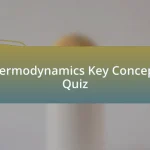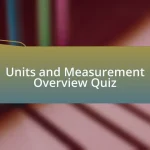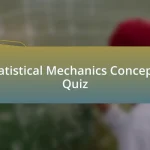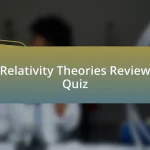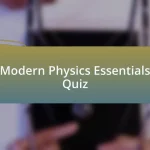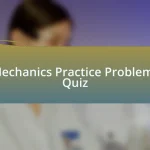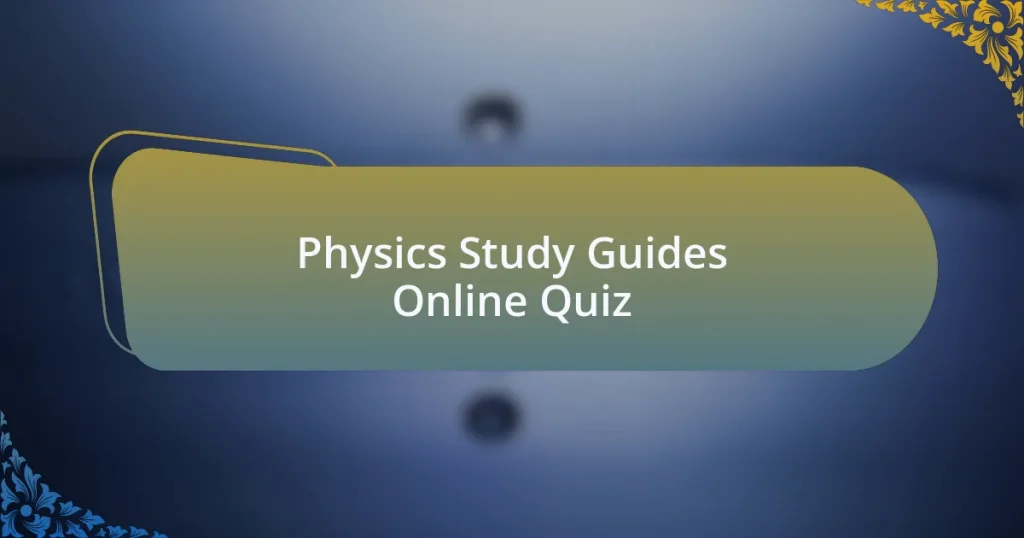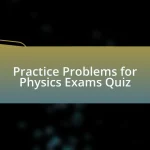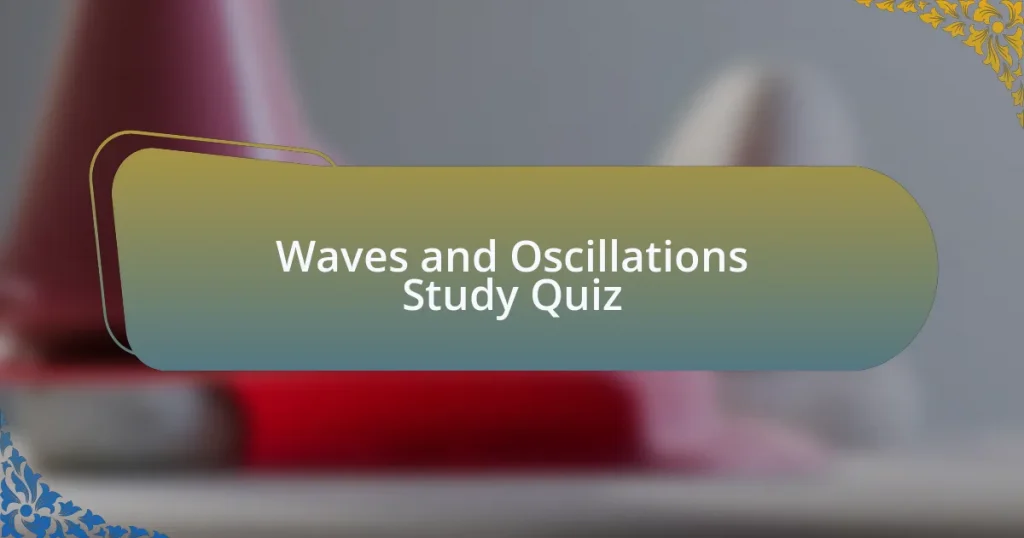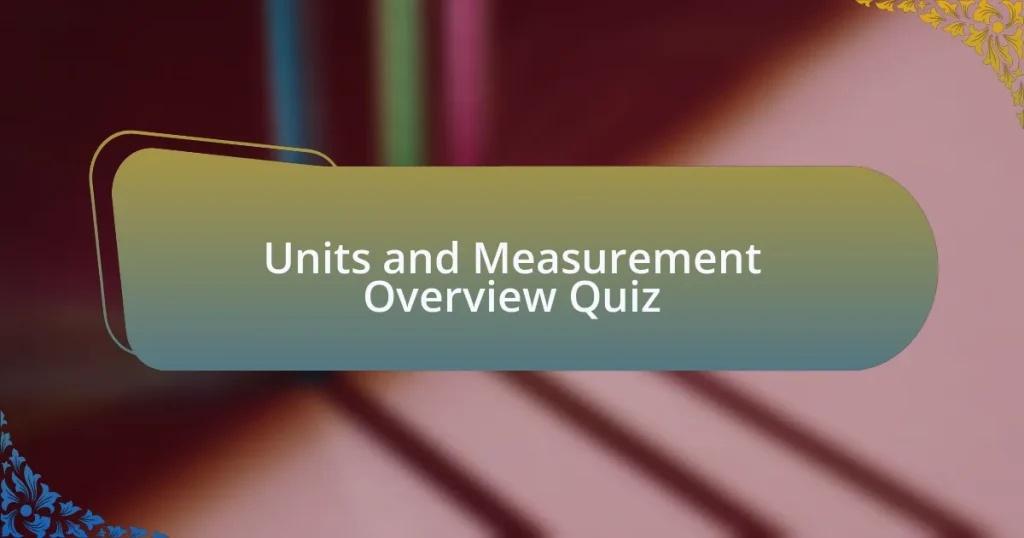Start of Physics Study Guides Online Quiz
1. What is the duration of the NES Physics exam?
- 3 hours and 45 minutes.
- 4 hours and 15 minutes.
- 1 hour and 50 minutes.
- 2 hours and 30 minutes.
2. How many questions are on the NES Physics exam?
- 100
- 200
- 150
- 175
3. What is the passing score for the NES Physics exam?
- 210
- 240
- 200
- 220
4. What is the cost of the NES Physics exam?
- $75
- $150
- $95
- $120
5. What percentage of the NES Physics exam is dedicated to Mechanics?
- 15%
- 50%
- 28%
- 35%
6. What percentage of the NES Physics exam is dedicated to Electricity and Magnetism?
- 10%
- 26%
- 22%
- 18%
7. What percentage of the NES Physics exam is dedicated to Waves?
- 20%
- 14%
- 30%
- 10%
8. What percentage of the NES Physics exam is dedicated to Modern Physics?
- 32%
- 14%
- 22%
- 28%
9. How is the NES Physics exam scored?
- The exam is scored based on the total number of correct answers.
- The exam is scored by averaging the scores of each section.
- The exam is scored as pass or fail only.
- The exam is scored using a scaled scoring method, converting raw scores to scaled scores ranging from 100 to 300.
10. How do you register for the NES Physics exam?
- You can register by mailing a physical application form to NES headquarters.
- You need to create an NES account on their website and then register for the exam via your account.
- You must visit a local testing center to register for the exam in person.
- Registration is completed through a phone call to a customer service representative.
11. What is the purpose of the Praxis Physics exam?
- The Praxis Physics exam is designed to assess knowledge in chemistry and biology subjects.
- The Praxis Physics exam measures the knowledge and skills essential for entry-level physics teachers.
- The Praxis Physics exam tests advanced theoretical physics concepts for graduate students.
- The Praxis Physics exam evaluates the practical laboratory skills of high school students.
12. How many questions are on the Praxis Physics exam?
- 150
- 200
- 125
- 100
13. What is the time limit for the Praxis Physics exam?
- 1 hour
- 4 hours
- 3 hours
- 2.5 hours
14. What is the cost of the Praxis Physics exam?
- $200
- $95
- $150
- $130
15. How is the Praxis Physics exam structured?
- The exam has a single category, which includes all physics concepts without division.
- The exam consists of five sections focusing solely on mechanics and classical physics.
- The exam is split into six content categories: Nature and Impact of Science and Engineering, Principles and Models of Matter and Energy, Mechanics, Electricity and Magnetism, Waves, and other topics.
- The exam is divided into two main parts, each covering different aspects of physics.
16. What is the nature of scientific knowledge assessed in the Praxis Physics exam?
- The historical development of physics concepts in isolation.
- Personal opinions and beliefs about scientific theories.
- The nature of scientific knowledge, interdependence of science, technology, and engineering.
- The memorization of scientific formulas without context.
17. What is the relationship between atomic spectra and electron energy levels assessed in the Praxis Physics exam?
- Atomic spectra are unrelated to electron energy levels.
- The relationship between atomic spectra and electron energy levels.
- Electron energy levels have no impact on atomic spectra.
- Atomic spectra are determined solely by temperature.
18. What is the concept of thermodynamics assessed in the Praxis Physics exam?
- Description of wave interference patterns.
- Calculation of work done by a force.
- Conceptual relationships of thermodynamics to physical processes.
- Definition of kinetic energy in systems.
19. What is the topic of rotational motion assessed in the Praxis Physics exam?
- Thermodynamics.
- Linear motion.
- Rotational motion.
- Electromagnetic waves.
20. What is the topic of electric current and capacitance assessed in the Praxis Physics exam?
- Electric current and capacitance.
- Rotational motion.
- Electromagnetic waves.
- Sound waves.
21. What is the topic of wave phenomena assessed in the Praxis Physics exam?
- Electromagnetic waves.
- Wave phenomena.
- Sound waves.
- Geometric optics.
22. What is the topic of sound waves assessed in the Praxis Physics exam?
- Magnetism
- Sound
- Light
- Heat
23. What is the topic of electromagnetic waves assessed in the Praxis Physics exam?
- Electromagnetic waves.
- Classical mechanics.
- Quantum mechanics.
- Fluid dynamics.
24. What is the topic of geometric optics assessed in the Praxis Physics exam?
- Thermodynamics.
- Geometric optics.
- Quantum mechanics.
- Fluid dynamics.
25. What is the topic of simple and combination circuits assessed in the Praxis Physics exam?
- Atomic spectra.
- Electromagnetic waves.
- Simple and combination circuits.
- Thermodynamics.
26. What is the topic of magnetic fields, forces, and materials assessed in the Praxis Physics exam?
- Magnetic fields, forces, and materials.
- Kinematics, dynamics, and energy.
- Optics, lenses, and mirrors.
- Electric fields, circuits, and currents.
27. What is the topic of electrostatics assessed in the Praxis Physics exam?
- Thermodynamics
- Relativity
- Electrostatics
- Quantum mechanics
28. What is the topic of conductors and insulators assessed in the Praxis Physics exam?
- Kinetic energy and potential energy.
- Quantum mechanics and relativity.
- Conduction and convection.
- Conductors and insulators.
29. What is the topic of types of waves assessed in the Praxis Physics exam?
- Sound waves.
- Simple circuits.
- Types of waves.
- Electric current.
30. What is the topic of the electromagnetic spectrum assessed in the Praxis Physics exam?
- The electromagnetic spectrum.
- Electromagnetic forces.
- Electric fields.
- Magnetic fields.
Congratulations, You’ve Completed the Quiz!
Well done on finishing the quiz about Physics Study Guides Online! This exercise not only tested your knowledge but also enhanced your understanding of various physics concepts. You may have discovered new study techniques or resources that can make your preparation more effective. This quiz served as a reminder of the importance of organized study materials in mastering complex ideas.
Throughout this quiz, you likely learned about the key topics and strategies that can boost your physics education. From understanding fundamental principles to knowing where to find quality online resources, you have taken vital steps toward your academic success. Engaging with these materials can foster a deeper appreciation for physics and how it shapes our world.
Now that you’ve completed this quiz, we invite you to explore the next section on this page. It offers more information about Physics Study Guides Online that can expand your knowledge even further. Dive into the resources available to enhance your test preparation and gain confidence in your physics studies. Happy learning!
Physics Study Guides Online
Overview of Physics Study Guides Online
Physics study guides online are resources designed to aid students in understanding physics concepts and preparing for exams. These guides often include summaries of key topics, equations, and problem-solving strategies. They can be found in various formats, such as PDFs, interactive websites, and video lectures. Many online platforms also offer quizzes and practice tests to reinforce learning. Such structured resources help students navigate complex theories in mechanics, electromagnetism, thermodynamics, and modern physics.
Benefits of Using Online Study Guides for Physics
Online study guides for physics offer several advantages. They provide flexible access to materials, allowing students to study at their own pace. Many guides are updated regularly, ensuring that users have the latest information and techniques. The interactive elements of some guides can enhance engagement and retention of material. Additionally, comprehensive practice problems help familiarize students with the types of questions they may encounter in exams.
Popular Platforms for Physics Study Guides
Numerous platforms specialize in providing physics study guides. Websites like Khan Academy, Coursera, and edX offer free and paid resources. These platforms often include video lectures, practice exercises, and community forums for discussion. Specialized sites like HyperPhysics provide detailed explanations and visual aids for complex topics. Utilizing a variety of these platforms can enhance a student’s understanding and preparation.
Key Features to Look for in Online Physics Study Guides
When selecting online physics study guides, certain features enhance their effectiveness. Look for guides that offer clear explanations, visual aids like diagrams and videos, and interactive problem-solving sections. Adaptive learning technology can personalize the experience based on the student’s progress. Additionally, check for user reviews and testimonials, as these can provide insights into the guide’s overall effectiveness.
Strategies for Effectively Using Online Physics Study Guides
To maximize the benefits of online physics study guides, students should employ specific strategies. Set a regular study schedule to ensure consistent engagement with the material. Actively take notes while studying to reinforce learning. Practice problems immediately after learning concepts to apply theoretical knowledge. Finally, review mistakes on practice tests to understand misconceptions and strengthen weak areas.
What are Physics Study Guides Online?
Physics study guides online are educational resources designed to help students understand and prepare for physics topics and examinations. These guides often include summaries of key concepts, practice problems, and explanations of physics principles. For example, many popular platforms, such as Khan Academy and Coursera, offer structured courses and study materials specifically tailored for test preparation in physics.
How can Physics Study Guides Online assist in test preparation?
Physics study guides online assist in test preparation by providing curated content that focuses on essential topics, practice questions, and interactive quizzes. This targeted approach allows students to reinforce their understanding and identify weak areas. A study by the National Center for Education Statistics shows that students who utilize structured study materials generally perform better on standardized tests, highlighting the effectiveness of these online resources.
Where can I find reliable Physics Study Guides Online?
Reliable physics study guides online can be found on educational platforms such as Khan Academy, MIT OpenCourseWare, and numerous university websites. These resources often offer free or low-cost access to high-quality materials. Websites like Chegg and Quizlet also provide user-generated study materials that are frequently updated and peer-reviewed.
When should I start using Physics Study Guides Online for test preparation?
Students should start using physics study guides online at least several weeks before their exams. This allows sufficient time to cover all necessary topics, practice problems, and revise challenging areas. Research indicates that spaced repetition and early preparation can significantly increase retention and understanding, crucial for success in physics tests.
Who benefits the most from Physics Study Guides Online?
Students preparing for physics examinations, including high school students, college undergraduates, and even those pursuing standardized tests like the SAT or GRE, benefit the most from physics study guides online. According to the American Institute of Physics, comprehensive study materials can significantly enhance student performance and confidence in a subject often considered challenging.
